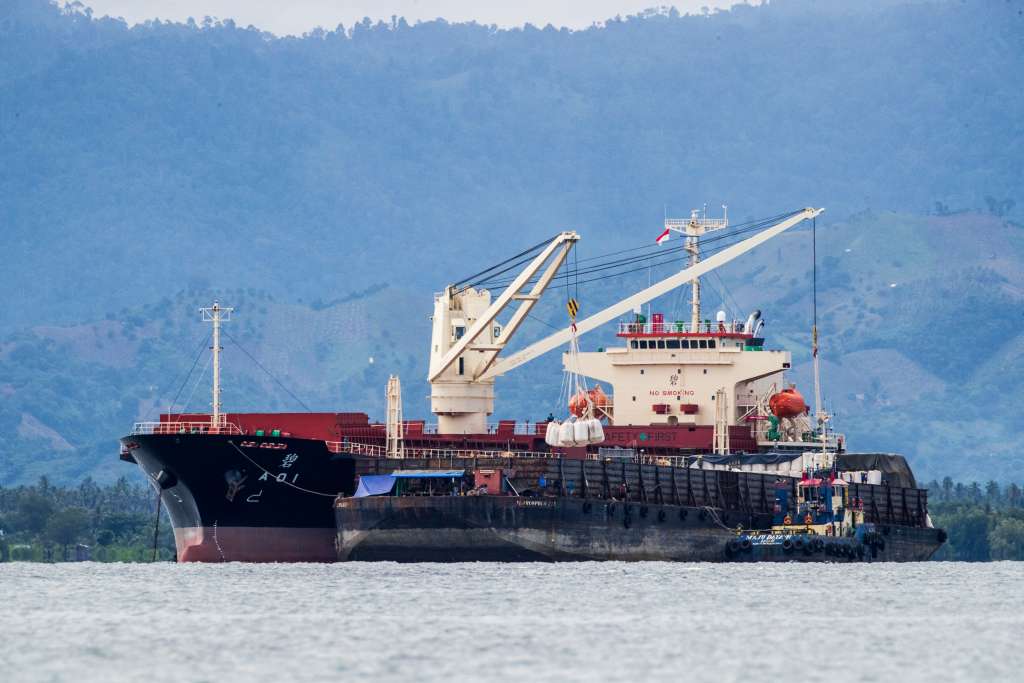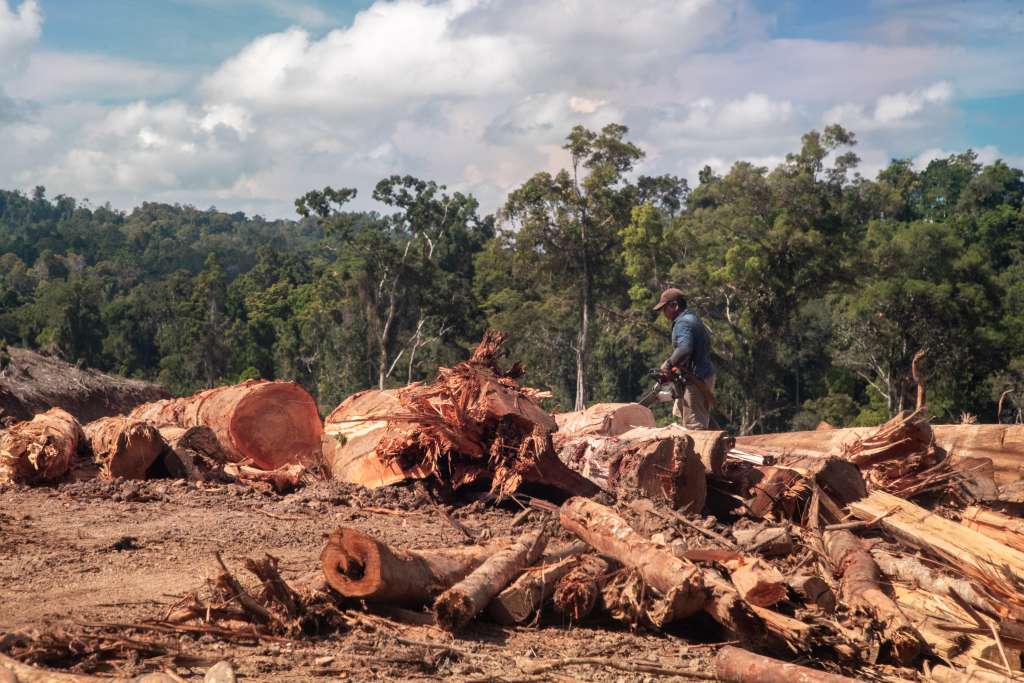
The increase in wood pellet exports from Indonesia has drawn attention in recent months, particularly following the capture of the foreign vessel, MV Lakas, by the Indonesian Maritime Security Agency (Bakamla RI) on August 16, 2024, which was carrying wood pellets from Gorontalo. Wood pellet production has led to deforestation, land degradation, and significant carbon emissions. The existence of the wood pellet industry poses a potential risk for social injustice. This domination of big corporations in the wood pellet industry has worsen the situation by solely prioritizing economic profit over environmental and social impacts.
Amalya Reza Oktaviani, Trend Asia’s Biomass Program Manager, noted that global demand for wood pellets has been steadily increasing. In 2017, the demand reached 14 million tons. This trend is not only occurring in Indonesia but worldwide, including in the European Union (EU), South Korea, and Japan. The EU, for example, categorizes biomass as a renewable energy source in their energy directives. Meanwhile, South Korea and Japan provide subsidies for biomass energy utilization.
From a production perspective, countries like the UK, particularly through the DREX biomass plant, has utilize wood pellets significantly. DREX has even explores the potential to collaborate with Indonesia to develop wood pellets as a bioenergy source. The largest demand currently comes from Japan, South Korea, and the EU, especially in light of regulations like the EU Deforestation Regulation (EUDR) governing biomass commodities.
Climate Colonialism Through Wood Pellet Exports
Indonesia has recently issued government regulations promoting the development of biomass as a renewable energy source until 2040, aiming to increase biomass production beyond that of other renewable sources. The demand for biomass, including wood pellets, is projected to rise, positioning Indonesia as a major biomass producer.
This situation has of course presents more complex challenges for Indonesia. While wood pellets share similarities with coal in transportation and distribution, the emissions generated from burning biomass require careful consideration. The case of DREX in the UK shows that although biomass is regarded as clean energy, its operational practices can lead to deforestation and significant emissions.
Amalya cited the example of problem from Enviva, the largest biomass producer in the US, which went bankrupt despite receiving subsidies. They initially claimed to use waste for wood pellet production but often utilized wood from natural forests instead. This creates similar risks for Indonesia if natural resource management is not handled carefully.

The use of biomass in power plants, which later on is claimed to be energy sourced from waste, often actually utilizes raw materials from natural forests, obviously has discrepancies in operational costs that affect it’s pricing. In Indonesia, the purchase price for wood from PLN ranges from 450,000 to 600,000 rupiah per year, while abroad, particularly in South Korea, the price can be three times higher. This is concerning, as Indonesia risks repeating mistakes seen in the UK and the US.
Global developments in bioenergy indicate that Indonesia is not the only country advancing in this area, but countries worldwide are actively developing bioenergy as well. Bioenergy supplies 55% of the world’s renewable energy and contributes 6% to the total global energy supply. Bioenergy predominates due to sources that include not only biomass but also biofuels. For example, regulations related to bioethanol involving 2 million hectares in Merauke are also categorized under bioenergy. This needs to be carefully considered, especially when the development of renewable energy sources are derived from land-hungry industries. The impacts is not only limited to deforestation, but also related to the displacement of communities.
Data from Trend Asia reveal that the largest biomass importers from 2012 to 2022 were Poland, South Korea, and Italy. Indonesia has positioned South Korea as a key export destination due to their high demand, although Vietnam is currently the largest exporter of wood pellets to South Korea. Export data also indicate that Ukraine has emerged as the largest exporter of wood pellets, followed by Russia and Vietnam, with Indonesia positioned at the seventh rank.
Amalya emphasizes that in a few years from now, Indonesia’s position in the export market may increase. For example, 31 HTI (Industrial Timber Plantations) are committed to multi-business with HTE (Energy Plantations), providing 200,000 hectares of land for wood pellet production. Over time, this number has risen to 43 HTE, involving companies previously engaged in the mining sector.
Moreover, wood pellet exports from Indonesia continue to rise, driven by the elected president’s vision of making Indonesia a global leader in green energy. However, it is important to remember the impacts happening in Merauke and other regions, where local communities are often marginalized by these large-scale projects.
It is essential to ensure that when forest areas are utilized, the welfare of the communities must be a top priority. However, the reality is that policies often favor corporations over local communities. There are significant challenges in developing renewable energy that is not only environmentally friendly but also equitable for the communities involved. In this context, procedural, distributive, recognitive, and corrective justice must be integral to any policies adopted.
This note is sourced from a Roundtable discussion between CSOs and the media organized in collaboration with FWI and AJI Jakarta on September 26, 2024, in Jakarta.
Presentation materials from Asian Trends on Climate Colonialism and International Wood Pellet Demand can be downloaded at the link below:



